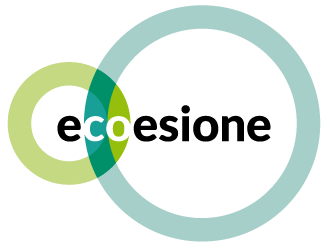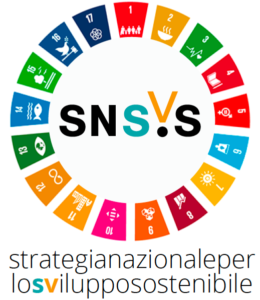Reading group
On the social limits to the ecological transition
Set-up
- Every Friday from 14:30 – 17:00 (unless specified otherwise)
- Each week one person prepare a 15-20 min presentation, summarizing the main findings of the assigned papers and raising some key discussion points
- Task: Read the assigned papers and develop 1/2 key questions or points you would like to bring to the discussion table
- The question(s) should be sent to the moderator latest the morning the reading group takes place so the moderator is able to guide the discussion after the presentation.
- Presenters are invited to choose a paper from the reading list or propose another reading and book a date by contacting the moderator.
- To contact the moderator write at ecoesione@posteo.net.
- To sign up to the reading group see the registration form below
Registration
Calendar
[07-05-2021 alle 14:30] – Asya Bellia
Berger, J. (2021). Social Tipping Interventions Can Promote the Diffusion or Decay of Sustainable Consumption Norms in the Field. Evidence from a Quasi-Experimental Intervention Study. Sustainability, 13(6), 3529. doi: 10.3390/su13063529
Milkoreit, M., Hodbod, J., Baggio, J., Benessaiah, K., Calderón-Contreras, R., Donges, J. F., … Werners, S. E. (2018). Defining tipping points for social-ecological systems scholarship—An interdisciplinary literature review. Environmental Research Letters, 13(3), 033005. doi: 10.1088/1748-9326/aaaa75
Otto, I. M., Donges, J. F., Cremades, R., Bhowmik, A., Hewitt, R. J., Lucht, W., … Schellnhuber, H. J. (2020). Social tipping dynamics for stabilizing Earth’s climate by 2050. Proceedings of the National Academy of Sciences, 117(5), 2354–2365. doi: 10.1073/pnas.1900577117
[30-04-2021 alle 14:30] – Nicola Campigotto
Douenne, T., & Fabre, A. (2020). Yellow vests, pessimistic beliefs and carbon tax aversion, Paris School of Economics Working Paper
Douenne, T., & Fabre, A. (2020). French attitudes on climate change, carbon taxation and other climate policies. Ecological Economics, 169, 106496. doi: 10.1016/j.ecolecon.2019.106496
[23-04-2021 alle 14:30] – Pietro Guarnieri
Floro, M. S. (1995). Economic restructuring, gender and the allocation of time. World Development, 23(11), 1913–1929. doi: 10.1016/0305-750X(95)00092-Q
Nelson, J. A., & Power, M. (2018). Ecology, Sustainability, and Care: Developments in the Field. Feminist Economics, 24(3), 80–88. doi: 10.1080/13545701.2018.1473914
Dengler, C., & Strunk, B. (2018). The Monetized Economy Versus Care and the Environment: Degrowth Perspectives On Reconciling an Antagonism. Feminist Economics, 24(3), 160–183. doi: 10.1080/13545701.2017.1383620
[09-04-2021 alle 14:30] – Chandni Dwarkasing
Fritz, M., & Koch, M. (2019). Public Support for Sustainable Welfare Compared: Links between Attitudes towards Climate and Welfare Policies. Sustainability, 11(15), 4146. doi: 10.3390/su11154146
Otto, A., & Gugushvili, D. (2020). Eco-Social Divides in Europe: Public Attitudes towards Welfare and Climate Change Policies. Sustainability, 12(1), 404. doi: 10.3390/su12010404
[26-03-2021 alle 14:30] – David Cano
Althouse, J., Guarini, G., & Gabriel Porcile, J. (2020). Ecological macroeconomics in the open economy: Sustainability, unequal exchange and policy coordination in a center-periphery model. Ecological Economics, 172, 106628. doi: 10.1016/j.ecolecon.2020.106628
Brand, U., & Wissen, M. (2013). Crisis and continuity of capitalist society-nature relationships: The imperial mode of living and the limits to environmental governance. Review of International Political Economy, 20(4), 687–711. doi: 10.1080/09692290.2012.691077
[19-03-2021 alle 14:30] – Marta Bonetti
Barca, S., & Leonardi, E. (2018). Working-class ecology and union politics: A conceptual topology. Globalizations, 15(4), 487–503. doi: 10.1080/14747731.2018.1454672
García-García, P., Carpintero, Ó., & Buendía, L. (2020). Just energy transitions to low carbon economies: A review of the concept and its effects on labour and income. Energy Research & Social Science, 70, 101664. doi: 10.1016/j.erss.2020.101664
[11-03-2021 alle 14:30] – Chandni Dwarkasing
Jensen, H., Pérez Domínguez, I., Fellmann, T., Lirette, P., Hristov, J., & Philippidis, G. (2019). Economic Impacts of a Low Carbon Economy on Global Agriculture: The Bumpy Road to Paris. Sustainability, 11(8), 2349. doi: 10.3390/su11082349
Klerkx, L., & Rose, D. (2020). Dealing with the game-changing technologies of Agriculture 4.0: How do we manage diversity and responsibility in food system transition pathways? Global Food Security, 24, 100347. doi: 10.1016/j.gfs.2019.100347
[26-02-2021 alle 14:30] – Tiziano Distefano
Liu, J., Hull, V., Godfray, H. C. J., Tilman, D., Gleick, P., Hoff, H., … Li, S. (2018). Nexus approaches to global sustainable development. Nature Sustainability, 1(9), 466–476. doi: 10.1038/s41893-018-0135-8
Spaiser, V., Ranganathan, S., Swain, R. B., & Sumpter, D. J. T. (2017). The sustainable development oxymoron: Quantifying and modelling the incompatibility of sustainable development goals. International Journal of Sustainable Development & World Ecology, 24(6), 457–470. doi: 10.1080/13504509.2016.1235624
[19-02-2021 alle 14:30] – André Cieplinski
Semieniuk, G., Taylor, L., Rezai, A. and Foley, D.K., 2021. Plausible energy demand patterns in a growing global economy with climate policy. Nature Climate Change, pp.1-6. doi: 10.1038/s41558-020-00975-7
Grubert, E., 2020. Fossil electricity retirement deadlines for a just transition. Science, 370(6521), pp.1171-1173. doi: 10.1126/science.abe0375
[12-02-2021 alle 14:30] – Pietro Guarnieri
Edmondson, D. L., Kern, F., & Rogge, K. S. (2019). The co-evolution of policy mixes and socio-technical systems: Towards a conceptual framework of policy mix feedback in sustainability transitions. Research Policy, 48(10), 103555. doi: 10.1016/j.respol.2018.03.010
Kern, F., Rogge, K. S., & Howlett, M. (2019). Policy mixes for sustainability transitions: New approaches and insights through bridging innovation and policy studies. Research Policy, 48(10), 103832. doi: 10.1016/j.respol.2019.103832
[05-02-2021 alle 14:30] – Marco Catola
Anderson, B., Böhmelt, T., & Ward, H. (2017). Public opinion and environmental policy output: A cross-national analysis of energy policies in Europe. Environmental Research Letters, 12(11), 114011. doi: 10.1088/1748-9326/aa8f80
Drews, S., & Bergh, J. C. J. M. van den. (2016). What explains public support for climate policies?A review of empirical and experimental studies. Climate Policy, 16(7), 855–876. doi: 10.1080/14693062.2015.1058240
[29-01-2021 alle 14:30] – Nicola Campigotto
Lamb, W. F., Antal, M., Bohnenberger, K., Brand-Correa, L. I., Müller-Hansen, F., Jakob, M., … Sovacool, B. K. (2020). What are the social outcomes of climate policies? A systematic map and review of the ex-post literature. Environmental Research Letters, 15(11), 113006. doi: 10.1088/1748-9326/abc11f
Markkanen, S., & Anger-Kraavi, A. (2019). Social impacts of climate change mitigation policie and their implications for inequality. Climate Policy, 19(7), 827–844. doi: 10.1080/14693062.2019.1596873
[22-01-2021 alle 14:30] – Bárbara Bastos
McCauley, D., & Heffron, R. (2018). Just transition: Integrating climate, energy and environmental justice. Energy Policy, 119, 1–7. doi: 10.1016/j.enpol.2018.04.014
Tomassetti, P. (2020). From Treadmill of Production to Just Transition and Beyond. European Journal of Industrial Relations, 26(4), 439–457. doi: 10.1177/0959680120951701



